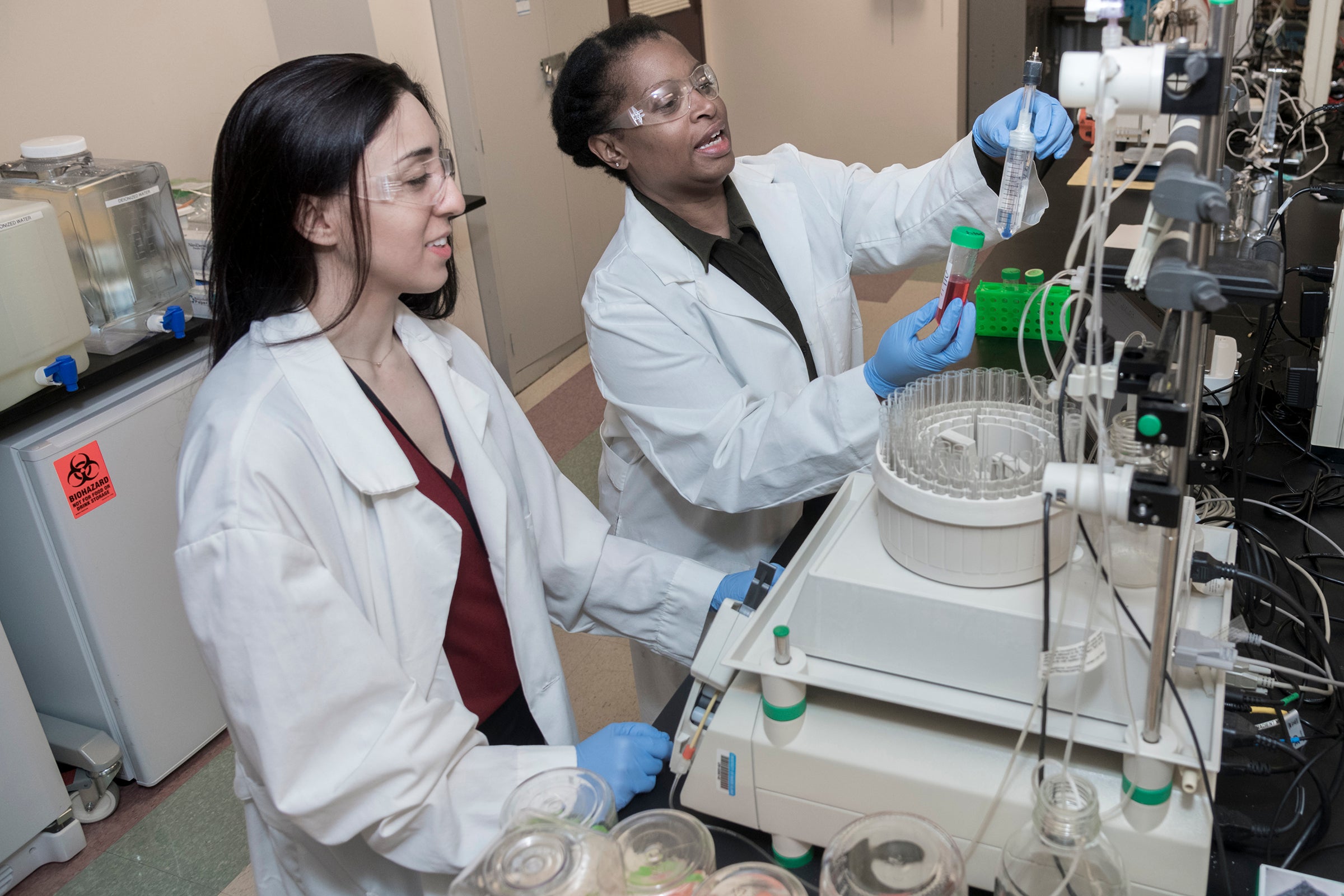PROVIDENCE, R.I. – December 15, 2017 – When the University of Rhode Island established its Biotechnology Manufacturing Program at its Providence campus in 2002, the state’s biotech industry was in its infancy. The region’s only large biotech company, Amgen, was in need of large numbers of trained workers, so the program was initially focused on meeting that need.
As the program celebrates its 15th anniversary this school year, it has evolved to serve the needs of a growing number of small start-up companies as well, while also providing a launching point for students entering medical school or seeking to pursue other careers.
Ed Bozzi, the URI clinical professor who directs the program, said interest in the program has increased dramatically through the years, with class sizes more than doubling from 8 students to 20 or more.
“Initially it was developed as a program for non-traditional students – those seeking to change careers or re-enter the workforce – who could complete a year of coursework and be ready to get a job,” he said, noting that almost no one leaves the program after just one year any more. “Now, half of our students are traditional students coming straight from high school, where many of them have already had an introduction to biotechnology.
“We’re also getting more and more post-military students,” Bozzi added. “In this year’s class, all four branches of the military are represented.”
One thing that hasn’t changed is the internship opportunity. Every student completes a summer internship at a local biotech company following their freshman year, and about half of the students are offered part-time work at those companies by the end of the internship. Among the companies hosting interns from the program are Neurotech, Agcore Technologies, Kineteks, ProThera Biologics, Vitae Industries, Labonachip, EpiVax, InCytu and many others.
“And because of the credit they get for their internships, many students can complete their bachelor’s degree in only three or three-and-a-half years,” Bozzi said.
He also said that several students have graduated from the program and continued on to earn graduate degrees from schools of medicine, dentistry and physician assistants.
Lindsey Chammas of Providence was attracted to the program by its small class sizes and the availability of faculty members to work one-on-one as necessary.
“It really has a family feel to it,” she said. “The professors are always there to help you, the students work together to help each other. It has a homey feel to it.”
Chammas, a senior, was also impressed with how much she learned in a short period of time. She is now considering enrolling in a doctoral program to become a genomics researcher, something she never before had envisioned.
Rebecca Ralston was also impressed with the support the program offers its students, not to mention the useful experience she gained.
“It’s very hands-on, which reinforces what you’re reading and makes it real,” said Ralston, a senior from Uxbridge, Mass., who enrolled in the program to change her career direction after her mother became ill. “The lab experience builds our confidence in our abilities to perform the experiments and develop our techniques, which gives us an advantage in the work place.
“I’ve always thought there was a better way to cure people of disease,” she added. “I’m determined to make my mark in the science world and hopefully help find a cure for something, or lay the groundwork for someone else to discover something, to make people’s lives better in the long run.”
When Marilyn Le graduated from the program in 2014, she continued on to earn a master’s degree in pharmacology at Brown University, and now she works for pharmaceutical company KaryoPharm Therapeutics in Newton, Mass.
“When I first enrolled in the program, I figured it would be a good stepping stone for anywhere I might want to work afterwards,” said Le, who lives in Attleboro, Mass. “It’s a very versatile degree. I could go into science, med school, pharmacy, wherever.”
That has proven true for Le. Today she manages vendors that conduct the clinical trials for the cancer drug her company has developed, and she plans to eventually branch out into business development in the pharmaceutical field.
“I can use that biotech degree and go wherever I want to go with it,” said Le.

